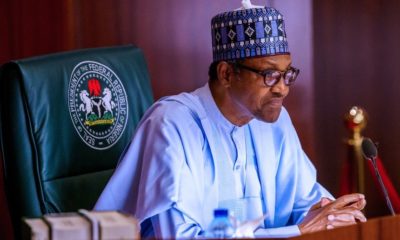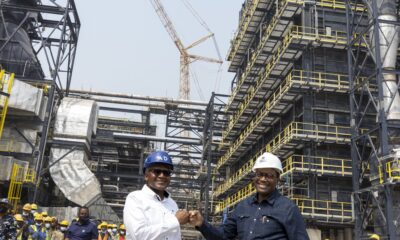President Buhari to Channel Policy Towards Addressing Economic Limitations, Others
President Muhammadu Buhari on Tuesday listed economic growth, poverty and other seven key issues as the focus of his administration for the remaining three years of his term.
In a statement made available by his media adviser, Mr. Femi Adesina, the president listed the areas of focus as “building a thriving and sustainable economy; enhancing social inclusion and reduce poverty; enlarging agricultural output for food security and export; attaining energy sufficiency in power and petroleum products and expanding transport and other infrastructural development.
Others were “Expanding business growth, entrepreneurship and industrialisation; expanding access to quality education, affordable healthcare and productivity of Nigerians; building a system to fight corruption, improving governance and creating social cohesion and improving the nation’s security.”
The President said efforts have been made to identify nine priority areas to channel the administration policy in the next few years.
He said, “In our efforts to achieve a realistic domestic and foreign policy, as well as national development, we have identified the following nine priority areas to guide our policy directions over the next few years.”
“I have no doubt that you might have prior and in-depth knowledge of Nigeria’s huge potential, which you will hopefully see for yourselves. I, therefore, urge you to go around the country, see things for yourselves and report to your home governments. This is important as you all are representatives of both your sending and host states,” he said.
Speaking on what seems to be the Malian coup, Buhari said Nigeria has always ensured fair world order in line with the international law and the United Nations charter.
Buhari said “Nigeria strongly supports joint action to ensure a democratic and fair world order based on strict respect for the norms of international law, the United Nations charter, recognition of the unquestionable value of cultural diversity, national sovereignty, and the right of all countries to decide their future freely, without external pressure.
“Nigeria does not divide its partners into big and small; we value and respect every country, and with every country, we are ready to pursue dialogue, as well as build cooperation on the basis of equality and constructive mutual respect.
“These include our cooperation in strengthening regional, continental and global peace and security, resolving complex issues, settling conflicts, as well as addressing dangerous threats to mankind, among which include terrorism, the proliferation of small arms and light weapons, human trafficking, cybercrimes, poverty, communicable diseases and epidemics,” he said.
He said Nigeria was always focused on resolving conflicts in Africa and simultaneously not failing in its domestic matters.
“On behalf of my colleagues, we thank you for receiving us. We know that your schedule is tight. As the giant of Africa, you are always focused on resolving conflicts in the continent, while taking care of your domestic issues as well,” he stated.

 Naira4 weeks ago
Naira4 weeks ago


 Naira4 weeks ago
Naira4 weeks ago


 Naira3 weeks ago
Naira3 weeks ago


 News4 weeks ago
News4 weeks ago
 Travel4 weeks ago
Travel4 weeks ago




 Naira3 weeks ago
Naira3 weeks ago


 Jobs3 weeks ago
Jobs3 weeks ago
 Naira3 weeks ago
Naira3 weeks ago




















